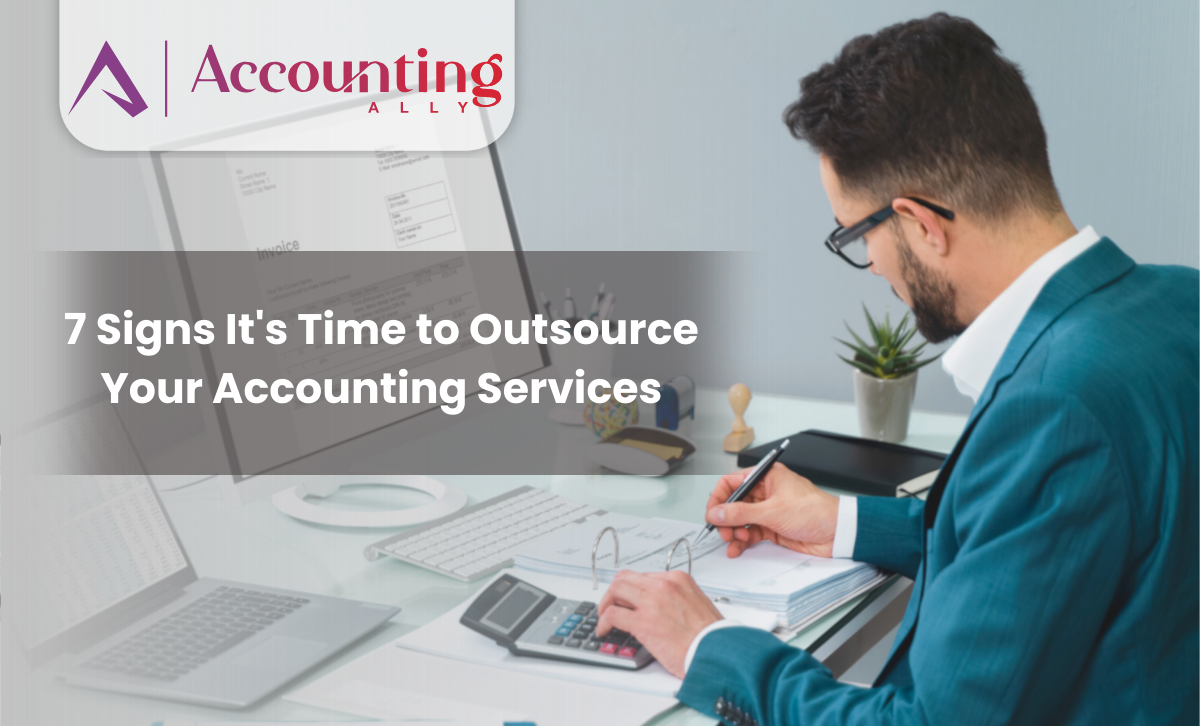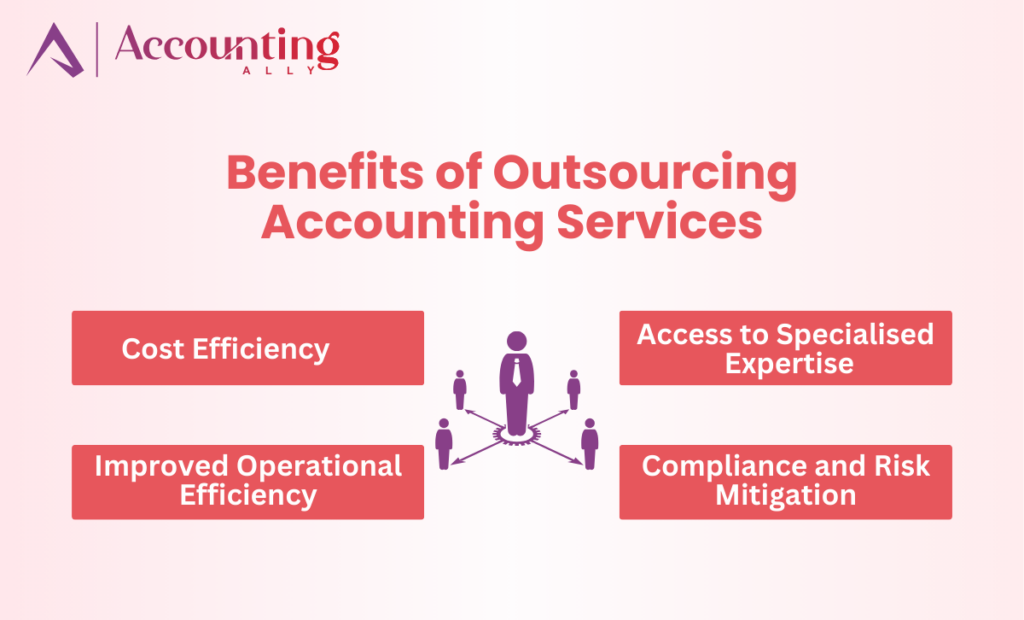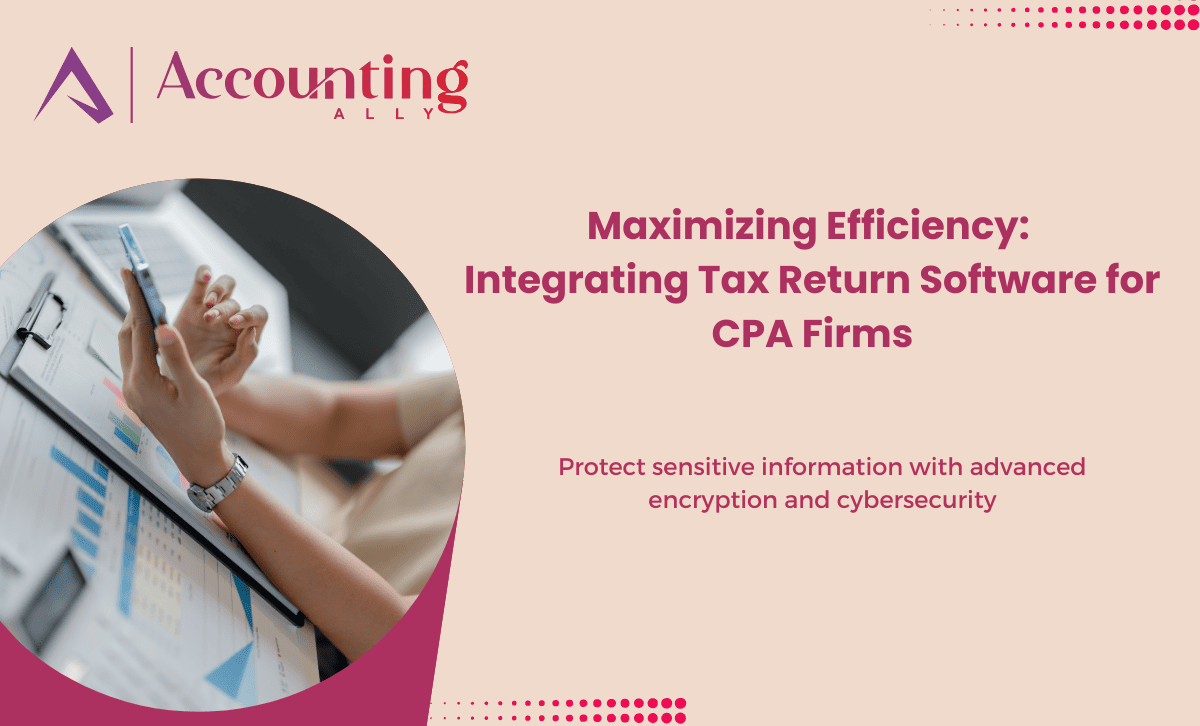Why Startups Are Turning to Outsourced Accounting Firms for Scalable Growth?
Startups are changing how they handle their finances. Instead of doing everything in-house, more and more companies are turning to outsourced accounting firms for help. This shift is driven by the need for scalable growth and staying competitive in today’s fast-paced business world.
Accounting is crucial for any business to succeed. It’s not just about keeping track of numbers; it plays a vital role in decision-making, planning, and growth. However, many startups struggle with managing their finances effectively while also focusing on their main goals.
Outsourced accounting is becoming popular among startups for several reasons:
- Cost savings by reducing overhead costs
- Access to expertise without hiring full-time employees
- Flexible solutions that can adapt as your business grows
- Efficiency improvements through advanced technology
- Better decision-making with real-time financial insights
- Preparedness for investors with professional financial management
These advantages have shifted the perception of outsourced accounting from just a way to cut costs to a strategic tool for growth. As startups go through different stages of development, such as securing funding or expanding into new markets, they can rely on outsourced accounting firms for the financial support they need.
This trend reflects a larger change in how modern startups approach growth – focusing on efficiency, adaptability, and smart resource allocation to increase their chances of success.
1. Cost-Effectiveness of Outsourcing Accounting Services
Building an in-house accounting team requires significant investment. A single full-time accountant’s salary ranges from $50,000 to $80,000 annually, plus benefits, training costs, and overhead expenses. These costs multiply as your startup grows and needs additional staff.
Outsourced accounting services offer a budget-friendly alternative:
- Fixed Monthly Fees: Predictable costs starting at $1,000-$3,000 per month
- No Employee Benefits: Eliminate expenses for health insurance, paid time off, and retirement plans
- Zero Training Costs: Access to pre-trained professionals with diverse industry experience
- Flexible Scaling: Pay only for services needed during different growth phases
The cost savings extend beyond direct expenses:
- Reduced software licensing fees
- Lower office space requirements
- Minimized recruitment costs
- Decreased risk of costly financial errors
For startups operating with limited capital, finance and accounting outsourcing creates immediate positive impact on cash flow. A typical startup can save 40-60% on operational costs compared to maintaining an in-house accounting department.
2. Access to Specialized Expertise
Navigating complex financial regulations requires deep expertise that many startups lack internally. Outsourced accounting firms bring specialized knowledge in critical areas:
Regulatory Compliance
- GAAP (Generally Accepted Accounting Principles)
- IFRS (International Financial Reporting Standards)
- Industry-specific reporting requirements
- SEC regulations for pre-IPO companies
Tax management becomes increasingly complex as startups grow. Professional accounting firms employ experts who:
- Stay current with tax code changes
- Identify applicable deductions and credits
- Structure transactions for optimal tax efficiency
- Handle multi-state and international tax obligations
These firms maintain their expertise through:
- Regular professional development programs
- Memberships in accounting associations
- Access to specialized tax and compliance databases
- Collaborative networks with legal and financial experts
Your outsourced accounting team can spot potential compliance issues before they become problems. They understand the nuances of:
- Revenue recognition rules
- Equity compensation accounting
- R&D tax credits
- Venture capital reporting requirements
The depth of specialized knowledge extends beyond basic bookkeeping – these professionals serve as strategic advisors who help protect your startup from costly regulatory mistakes while maximizing financial opportunities.
3. Scalability and Adaptability of Outsourced Accounting Services
Startup accounting needs change significantly as they go through different stages of growth. A business may start with outsourced accounting bookkeeping but quickly require complex financial modeling, multi-currency transactions, and advanced reporting systems.
Outsourced accounting firms offer flexible service packages that can grow with your business:
- Early-stage support: Basic bookkeeping, expense tracking, and financial statement preparation
- Growth-phase services: Advanced budgeting, cash flow forecasting, and departmental accounting
- Expansion-stage solutions: Multi-entity accounting, international tax compliance, and merger/acquisition support
These scalable solutions eliminate the need to hire new staff or retrain existing teams during periods of growth. Your outsourced accounting partner can quickly adjust service levels based on:
- Increases in transaction volume
- Entry into new markets
- Addition of product lines
- Funding rounds
- Regulatory requirements
Outsourced firms have resources and expertise readily available, allowing startups to scale operations without delays or disruptions. This adaptability is especially valuable during rapid growth phases when internal resources may struggle to keep up with increasing financial complexities.
4. Improving Operational Efficiency Through Outsourced Accounting Firms
Outsourced accounting firms use automated systems to manage data in a way that completely changes how financial processes work. These systems accurately capture, organize, and analyze financial data, reducing errors caused by manual entry and saving precious time.
Your startup can benefit from:
- Real-time financial dashboards
- Automated expense tracking
- Instant reconciliation reports
- Customized KPI monitoring
The use of cloud-based solutions allows for smooth collaboration between your team and accounting experts. You receive immediate updates on:
- Cash flow status
- Revenue trends
- Expense patterns
- Budget variances
This real-time visibility gives you the power to make quick decisions based on data. When opportunities arise in the market, you can instantly evaluate your financial situation and take action without hesitation. The advanced reporting tools provided by outsourced firms turn complicated financial data into practical insights, helping you find growth opportunities and potential risks before they affect your business.
Professional accounting firms also have strong security measures in place to protect your financial data, ensuring that your financial operations are both efficient and secure.
5. Allowing Focus on Core Business Activities with Outsourced Accounting Services
Time is valuable for startup founders. Research shows that founders spend up to 40% of their time on tasks that don’t directly contribute to business growth – with financial management taking a significant chunk of this time.
Outsourcing accounting functions creates a powerful shift in time allocation. You’ll gain:
- Dedicated Focus Hours: Direct your energy toward product development, market expansion, and customer acquisition
- Strategic Planning Time: Invest in developing innovative solutions and competitive strategies
- Team Development: Build stronger relationships with your core team and key stakeholders
The delegation of financial tasks to specialized accounting firms unlocks resources for:
- Product innovation and R&D
- Marketing initiatives
- Sales strategy development
- Customer relationship building
- Team expansion planning
Startups that outsource their accounting functions report spending 60% more time on growth-driving activities. This reallocation of resources often translates into faster market penetration and enhanced competitive advantage in rapidly evolving markets.
6. Support Through Various Growth Stages Provided by Outsourced Accounting Firms
Outsourced accounting firms adapt their services to match your startup’s evolving needs across different growth stages. During the initial startup phase, these firms help you:
- Set up basic accounting systems
- Create financial reporting structures
- Establish payroll processes
- Implement expense tracking methods
As your startup matures, the support shifts to more complex services:
- Strategic financial forecasting
- Advanced budgeting techniques
- Risk management strategies
- Merger and acquisition support
- International tax planning
Your growth journey requires different levels of financial expertise at each stage. Outsourced firms provide specialized risk assessment services to protect your expanding business interests. They analyze potential threats, evaluate market conditions, and develop mitigation strategies tailored to your growth phase.
These firms also offer crucial guidance during pivotal moments:
- Series funding rounds
- Market expansion
- Product diversification
- Team scaling
The depth of support increases proportionally with your startup’s complexity, ensuring you have the right financial infrastructure to support sustainable growth.
7. How Startups Benefit from Technology Used by Outsourced Accounting Firms
Modern outsourced accounting firms use advanced technology to provide efficient services to startups. These firms usually rely on:
1. Cloud-Based Accounting Software
- QuickBooks Online
- Xero
- NetSuite
- Sage Intacct
2. Automation Tools
- Bill.com for automated payments
- Expensify for receipt tracking
- Hubdoc for document management
- Zapier for workflow automation
The combination of these advanced accounting software solutions creates a smooth financial system for startups. You can access financial data in real-time through secure portals, allowing you to make quick decisions based on up-to-date information.
Automated systems reduce manual data entry by 90%, minimizing human errors and saving valuable time. These platforms also offer:
- Customizable dashboards for financial monitoring
- Automated bank reconciliations
- Digital receipt capture and storage
- Instant financial report generation
- Multi-currency support for international operations
The cloud-based nature of these solutions ensures your financial data remains secure, backed up, and accessible from anywhere – a crucial feature for remote teams and growing startups.
8. Investor Readiness and Financial Transparency Facilitated by Outsourced Accounting Services
Securing investor funding requires impeccable financial records and a professional presentation. Outsourced accounting firms excel at preparing startups for successful fundraising rounds through:
Key Financial Documentation
- Detailed profit and loss statements
- Balance sheets with clear asset tracking
- Cash flow projections backed by historical data
- Revenue forecasts based on market analysis
Investor-Ready Reporting
- Professional financial metrics tracking
- Industry-standard KPI documentation
- Compliance verification records
- Due diligence preparation packages
Your outsourced accounting team acts as a strategic partner during fundraising. They create compelling financial narratives that showcase your startup’s growth potential to investors. These experts understand what venture capitalists and angel investors look for in financial statements.
The value extends beyond paperwork – outsourced accountants help you practice pitch presentations, prepare responses to financial inquiries, and build credibility with potential investors. Their experience working with multiple startups provides insights into investor expectations and common due diligence requirements.
Conclusion
Outsourced accounting services have become a crucial element in the success stories of startups across various industries. These services provide a strategic advantage by offering professional financial management, expert advice, and flexible solutions that can adapt to the changing needs of startups.
The decision to work with outsourced accounting firms shows a deeper understanding of what drives sustainable growth in today’s competitive environment:
- Cost-effective access to specialized expertise
- Improved operational efficiency through advanced technology
- Enhanced financial transparency for stakeholder confidence
- Strategic allocation of resources for core business activities
The future outlook for outsourced accounting in the startup ecosystem looks promising:
- Integration of AI and machine learning for predictive financial analytics
- Enhanced real-time collaboration through advanced cloud platforms
- Expanded service offerings tailored to industry-specific needs
- Greater emphasis on strategic financial advisory roles
Startups that embrace outsourced accounting position themselves for success by building strong financial foundations while maintaining the agility to scale. This strategic partnership enables founders to focus on innovation and growth while ensuring their financial operations remain robust and compliant. As the startup landscape continues to evolve, outsourced accounting firms will remain essential partners in transforming entrepreneurial visions into sustainable business success.
FAQs
Why are startups increasingly opting for outsourced accounting services?
Startups are turning to outsourced accounting firms to achieve scalable growth due to the cost-effectiveness, access to specialized expertise, and enhanced operational efficiency that these services provide. By outsourcing, startups can focus on their core business activities while ensuring compliance and financial management is handled by professionals.
What are the cost benefits of outsourcing accounting for startups?
Outsourcing accounting services for small businesses can lead to significant cost savings compared to maintaining an in-house team. Startups operating on tight budgets can benefit from budget-friendly solutions that offer long-term financial advantages, such as reduced overhead costs and improved cash flow management.
How does specialized expertise in outsourced accounting benefit startups?
Outsourced accounting firms provide access to specialized knowledge in financial regulations and compliance, which is crucial for startups. These experts help manage tax obligations effectively and stay updated with changes in laws like GAAP and IFRS, ensuring that startups remain compliant and avoid costly penalties.
In what ways do outsourced accounting services support startup scalability?
As businesses grow, their accounting needs evolve. Outsourced accounting services offer scalable solutions that adapt to different growth phases, providing tailored support whether a startup is in its initial setup or advancing towards maturity. This flexibility helps startups manage rapid growth initiatives effectively.
How can outsourcing accounting improve operational efficiency for startups?
Outsourcing accounting enhances operational efficiency by streamlining processes and improving data management. It allows startups to gain real-time insights into their financial health, facilitating better decision-making and enabling founders to focus on strategic initiatives rather than getting bogged down by financial tasks.
What role does technology play in outsourced accounting for startups?
Outsourced accounting firms utilize advanced technologies such as cloud-based solutions and automation tools that benefit startups significantly. These technologies provide real-time data access, enhance accuracy in financial reporting, and streamline workflows, ultimately supporting better business decisions and investor readiness. Additionally, technology enables seamless integration with other software systems like CRM or payroll, ensuring efficient data exchange and reducing the risk of errors. This not only saves time but also allows startups to scale their operations without worrying about the financial aspect.












